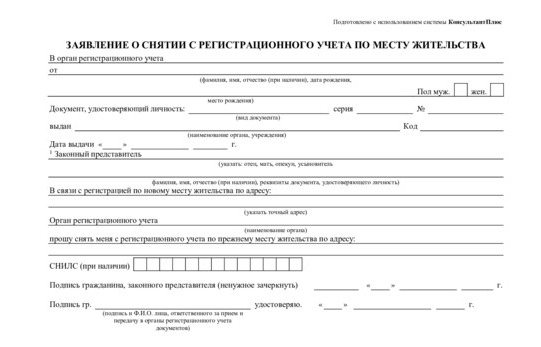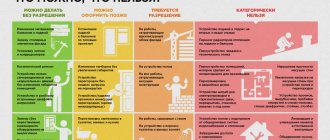General rules for living in a municipal apartment
A municipal apartment is a residential property owned by local authorities and rented out to private individuals. Of course, living in such housing is carried out on the basis of a social tenancy agreement and the registration of the relevant persons.
Here are some rules for living in municipal housing, which, depending on whether a person has a residence permit, may cause some inconvenience:
- As a general rule, people living in such an apartment pay for utilities themselves. When accounting equipment is installed, payment is made according to its indicators. However, there are often cases when such equipment is not available, and payment is made according to the number of persons registered in the housing. In such cases, an over-registered person may cause unnecessary expenses.
- A municipal apartment may eventually be privatized by the persons living in it. Every person officially registered in this housing is counted. That is, in fact, without a registered person, who is absent, privatization is impossible.
- After privatization, a municipal apartment becomes the property of all persons officially registered in it. Thus, a person registered but not living in the apartment will receive ownership rights, although in fact he did not participate in the privatization.
- Upon termination of a social tenancy agreement, a registered but not resident person is subject to expulsion from the property. If the registration of such a person was carried out during the period of validity of the agreement, then the responsibility for his registration will fall on the shoulders of the employer.
There are enough reasons for the discharge of a person who is not actually living. However, it is not always possible to do this for various reasons. Therefore, it is necessary to carefully study the procedure for deregistering persons who do not actually live in the apartment.
Conditions for discharge from public housing
A municipal apartment is the property of the city administration. The municipal housing fund acts as a landlord, renting out an apartment to a tenant. The person registered in a particular dwelling is the tenant. The grounds for expulsion, on which he may lose the right to registration and residence in this premises, are contained in Art. 91 Housing Code. However, this does not happen automatically, but by court decision, in accordance with Art. 35 Housing Code of the Russian Federation.
A citizen can be discharged from municipal housing only if all the conditions listed in paragraph 32 of Resolution of the Plenum of the Supreme Court of the Russian Federation dated July 2, 2009 No. 14 occur. In this case, it does not matter whether the person is included in the social tenancy agreement (in the warrant) or simply registered as a family member in a municipal apartment.
How to discharge a tenant for immoral behavior
One of the grounds for filing a claim in court for the purpose of expulsion from a municipal apartment is a violation of the rules of residence:
- alcohol abuse;
- drug use;
- constant scandals and quarrels with other residents.
In order for the statement of claim to the court to be convincing and influence the positive outcome of the case, it is first necessary to warn the registered person about the inadmissibility of such behavior, and then file a complaint with the municipality, attaching copies of evidentiary documents to the statement of claim.
Deregistration for improper use of housing
It is possible to discharge a citizen from municipal housing if there is evidence that he is not using the premises as a place to live.
Inappropriate use must be certified by special housing commissions that operate under all city and district administrations, or precinct district offices.
You can contact these authorities:
- municipality,
- neighbours,
- board of the HOA or management company.
After receiving a conclusion about the use of living space for other purposes, you can file a claim with the court for the discharge and eviction of a registered person who violates the established rules.
Statement for non-payment of utility bills
Another legal basis for deregistration is to deregister a person if he does not pay for utilities.
It is worth considering that if for more than six months one of the registered residents - members of the tenant’s family - does not pay for light, gas, electricity and other services provided in accordance with agreements between the consumer and suppliers, then the tenant himself is responsible for this. In this case, an attempt by a responsible tenant to discharge a defaulter by indicating this reason may result in trouble for himself and the entire family.
If the trend of non-payment is stable and irreversible, it is necessary to divide personal accounts, renew the social tenancy agreement for several tenants and begin the procedure for the discharge/eviction of the persistent defaulter.
Discharge due to long absence
It is also possible to discharge a person from a municipal apartment if he does not live in it. The court will satisfy the claim on this basis if the registered person:
- does not live in the apartment for a long time (clause 3 of article 83 of the Housing Code of the Russian Federation). Although the minimum is not established by law, a period of one year is actually taken into account;
- left on a permanent basis along with the property belonging to him, and not temporarily (for example, for the purpose of traveling to study, work, on a business trip, for treatment, etc.), which does not entail a change in the rights and obligations in relation to municipal housing (Art. 71 Housing Code of the Russian Federation);
- changed his place of permanent residence voluntarily, and not under duress or because of conflicts that made it impossible for him to stay in his home;
- during his absence, he did not partially or completely pay utility bills, did not take part in the maintenance of the apartment and its repair (part 4 of article 69 of the Housing Code of the Russian Federation);
- made no attempts to move into the home again, and in the presence of such attempts, did not encounter obstacles to her actions.
Features of extracting from a municipal apartment
How to discharge a person from a municipal apartment? According to the general rule of registration of citizens at a particular address, deregistration is carried out voluntarily, by the person himself or at the request of the court forcibly. At the request of other persons, deregistration is carried out in exceptional cases when the deregistered person has certain violations of the rules of residence. So it is better to ensure that the person himself wants to be discharged.
In any case, when a person himself does not want to, forcing him to leave a municipal apartment is not allowed by law. To do this, you need to issue his written consent, and if it is located in another place, this consent must be notarized, and a power of attorney to carry out the corresponding procedure must be issued on his behalf in the name of the issuing person. Once discharged, the person loses the right of residence.
Expulsion means deprivation of the right to reside. So before checking out, any person thinks about this consequence.
The law allows people to be discharged from municipal housing without their consent only on the following grounds:
- If a person was called up to serve in the armed forces, when there is a certificate from the military registration and enlistment office about this fact. In this case, the deregistration from the municipal apartment is temporary and upon returning from military service the person has the right to demand restoration of registration at the previous place of residence.
- When a person has been taken into custody by a court verdict or sentenced to imprisonment for long periods, the discharge is carried out by transferring a copy of the relevant verdict to the passport office. In this case, serving a sentence is not a basis for reinstating registration.
- When a registered person has been declared missing or dead by a decision of a judicial authority, the deregistration is also carried out on the basis of the corresponding decision. But if such a person is discovered in the future, he will have the right to restore his registration, but only if the court returns the status of such a person, as well as the possibility of registration in the appropriate housing.
In all other cases, deregistration is possible only by direct instructions in the court decision. Since one can be discharged by decision of a judicial authority, the operative part of such a decision must contain an indication of discharge or loss of the right of residence.
The decision is also submitted to the passport office by any interested person, after which the actual discharge of the person is carried out.
Is it possible to discharge a person from a municipal apartment?
The legislator provides for mandatory registration of every citizen. If a person does not want to undergo this procedure, then administrative liability may arise. We talked about this in detail in this article.
But in order to register at a new address, you must first check out of your old home. Is it possible to do this if your registration is in a municipal apartment? There are two methods of discharge, let's consider them in detail.
Voluntarily
The voluntary procedure for deregistration involves contacting the Department of Internal Affairs of the Ministry of Internal Affairs of the Russian Federation at the location of the apartment from which you want to deregister.
In this case, the consent of neither the owner of the property (the municipality) nor other tenants is required.
Without agreement
If there is a need to discharge a person from a municipal apartment, but he does not agree with this, then you will have to act differently. The only government body can decide that a citizen has lost the right to use the apartment and is subject to deregistration, the court.
Therefore, before making changes to the apartment card (house register), you will have to contact the justice authorities. Without a court decision, no passport officer will discharge a person who does not agree with the eviction.
The procedure for discharge through the court
How to be discharged from a municipal apartment through the court? An extract from the court is also not always possible. In order for the court to recognize the need to vacate the home and discharge the person living there, compelling reasons are needed. Such restrictions on discharge are established due to the constitutional guarantee to citizens of housing.
Thus, for the court to recognize the discharge of a person as necessary, the following circumstances are necessary:
- violation of the rules of residence;
- non-payment of utility bills;
- termination of family relationships;
- actual absence of a person for more than six months.
If the above reasons exist, the court will discharge the person at the request of the employer. Other registered persons do not have the right to demand the removal of persons who are not actually living from municipal housing, since the rental agreement is concluded with the tenant and, by agreement, he is assumed to be the owner of the housing.
We recommend that you read:
Is it possible to sign a person out of an apartment without his consent?
The application is submitted in accordance with the rules defined in the civil procedural legislation at the location of municipal housing.
It should contain the following information:
- name of the court;
- applicant details;
- information about the person subject to discharge;
- circumstances that are considered a reason for discharge;
- request for discharge;
- list of attached documentation;
- date and signature of the applicant.
Since it is impossible to provide documents that will certify the actual absence of a person, this circumstance must be confirmed by the testimony of neighbors, a housing organization, and so on. For this reason, the application must indicate information about several neighbors who will be able to testify at the court hearing or information about the housing organization.
Based on the testimony of eyewitnesses or a representative of the housing organization, the court makes a decision to discharge the relevant person from municipal housing. Based on this decision, the person is excluded from the house register, and the corresponding registration data in the passport office is also changed.
Grounds for expulsion from a municipal apartment
Since the right of citizens to housing is enshrined in the basic law of the state - the Constitution of the Russian Federation, the grounds for deregistering a person must be very compelling.
| No. | Reasons for eviction |
| 1 | Systematic immoral behavior of a person (alcohol consumption, noise at night, etc.) |
| 2 | Long-term non-payment of utility bills |
| 3 | Loss of family ties with the tenant of the premises |
| 4 | Deliberate destruction or destruction of communications, making changes to the housing structure |
| 5 | Violation of third party rights |
| 6 | Recognition of a real estate apartment as unsafe and subject to resettlement |
This list is not exhaustive, but it is worth remembering that in court you will have to justify the grounds for evicting a person.
Evidence can be both documents (police certificates, reports of inspections of residential premises, divorce certificate, etc.) and testimony of witnesses (neighbors, representatives of government agencies, other residents of the apartment).
Example. The house where R.P. Kurochkina lived. was declared an emergency. Since the apartment was provided to her under a social tenancy agreement, the administration invited the woman to move to an apartment of equal size and conditions. However, Kurochkina refused, as she also wanted to receive financial compensation for the move in the amount of 200,000 rubles. A representative of the district administration was forced to go to court with a claim to recognize Kurochkina as having lost the right to use the apartment and to evict her. The court, having considered the arguments of the parties, fully satisfied the plaintiff’s demands, and the woman was discharged from the apartment.
Eviction of spouses and minors, discharge of a pensioner
If the constitution guarantees every citizen a place of residence, then in the situation with spouses or minor children the situation is much more complicated. So, if it is necessary to discharge a spouse or children, then very compelling reasons are needed. The fact is that housing legislation establishes the right of family members to live together with the person who has a place of residence.
Thus, a spouse or minor child can legally be registered in a person’s municipal apartment. However, this does not relieve the municipal housing tenant of possible consequences.
Features of discharge, if the wife did not discharge herself, are as follows:
- for discharge it is necessary that the marriage between the spouses be dissolved;
- evidence is needed that one or another spouse grossly violates the rules of conduct;
- the spouse must pose a danger to the lives of children and other persons living in the apartment.
Unfortunately, the law does not provide any other grounds for the ex-wife to be discharged. By law, spouses do not have to be registered in the same apartment. So you need to think about the consequences before registering your spouse in the apartment. You always need to think about whether the person can be discharged in the future.
If it is quite difficult to discharge a spouse from an apartment, then it is impossible for children under 18 years of age or a granddaughter without parents.
So, before discharging a minor from a municipal apartment, you need to take into account the following circumstances:
- If during a divorce the court rules that the children remain with the other spouse, then they are discharged and registered at the place of residence of the other spouse.
- If the parents were deprived of parental rights by court order. In this case, they are discharged from their parents' home and placed under the care of third parties.
- If parents die. In this case, the registration of children is transferred from the place of residence of their parents to the place of residence of their legal guardians and trustees.
Depriving children of their registration without providing other housing is simply impossible. This is the state’s concern for children, that it guarantees each child a place of residence. The same rules apply for the discharge of pensioners.
Documents for discharge of a non-resident person
Depending on who needs to be evicted, it is necessary to collect the appropriate documents for the court that will support the demand for eviction.
So, if you need to evict a person who is an adult and capable, you must submit the following documents to the court:
- agreement on the rental of municipal housing;
- a copy of the applicant's passport;
- a copy of the rental agreement;
- written testimony from neighbors.
To remove a person who is the tenant's spouse from housing, the following documents are required:
- the court's decision;
- conclusion of the guardianship authority;
- psychiatric certificate (if the spouse’s mental state was considered unstable);
- drug report (if the spouse was recognized as a drug addict);
- written testimony of other residents of the relevant apartment or neighbors.
When a marriage between an employer and his spouse is dissolved, it is enough to present to the court a certificate of termination of the marital relationship, which is issued by the civil registry office (civil registry office) upon divorce.
We recommend that you read:
What is needed for the procedure of deregistration from an apartment or house
In turn, to discharge a child from an apartment, the following documents are needed:
- court order depriving the employer of parental rights;
- a court decision to leave the child with the other parent;
- a court decision on the adoption of a child by other persons.
Thus, it is impossible to deprive a child of his registration without an appropriate court decision. At the same time, persons who are adults but do not have legal capacity from the moment of birth also fall under the same conditions. For example, congenital disabled people suffering from brain diseases, and so on.
In addition to the above-mentioned evidentiary documents, documents are required that simply must be presented to the court, regardless of whether the applicant has evidence of the need to discharge a particular person.
Such documents include:
- a copy of the application for persons participating in the case;
- a receipt certifying payment of the fee for the court's consideration of the submitted application;
- a certificate or other document confirming the tenant’s rights to the relevant municipal housing;
- an extract from the housing organization about the persons living in the relevant apartment;
- an extract from the registration authority certifying a person’s ownership of the relevant housing.
If there are sufficient grounds, the court has the right to discharge a person without providing registration to another home, that is, to nowhere. In such cases, the state provides for registration in communal municipal housing or in special-purpose housing. However, the lack of registration is a violation, so you need to carefully monitor your registration status.
How to voluntarily discharge a person from a municipal apartment
If a person agrees to be discharged from a municipal apartment, then the procedure will take place quite quickly and will not require material costs.
Procedure
In order to discharge a person who agrees to this from the apartment, you must contact the Department of Internal Affairs of the Ministry of Internal Affairs of Russia.
You can do this in the following ways:
- through the Internet portal “State Services”;
- through the State Budgetary Institution “My Documents”;
- by contacting the migration authority in person;
- through a trusted person.
After submitting the documents, you must go to the Department of Internal Affairs of the Ministry of Internal Affairs of the Russian Federation and receive your passport with a mark on deregistration.
Procedure
Regardless of which method you choose to carry out the discharge procedure, you will have to fill out an application. You can get a sample of it from the migration authority or download it from the link below.

Documentation
In order to check out of a municipal apartment, you must provide only two documents to an employee of the Department of Internal Affairs of the Ministry of Internal Affairs of the Russian Federation:
- statement;
- passport of a citizen of the Russian Federation.
You will read about what documents registrars may require in exceptional cases in this article.
Deadlines
Deregistration in person or when submitting an application through State Services will take no more than three (working) days.
Extracting from a municipal apartment through the My Documents department of the State Budgetary Institution will require more time - up to two weeks.
If the discharge takes place with the participation of a representative, then the exact duration of the procedure cannot be given. It all depends on the speed of collecting all documents and transferring them to a trusted person.
Price
If a person decides to voluntarily deregister from a municipal apartment, he will not have to pay for this procedure. The requirement of migration agency employees to pay any state duty is illegal; in this case, file a complaint with the supervisory services.
Expenses when checking out of an apartment may only arise if you decide to use the services of a representative (for notarization of a power of attorney and application, for sending documents, etc.)
Grounds for the employment agreement
According to housing legislation, the rules for the use of municipal apartments are determined. Thus, all conditions of use and grounds for registration and deregistration can also be based on the norms of housing legislation, unless the agreement establishes a different rule.
The rules are mainly determined by the municipal authority, so they can be quite varied, depending on the position of the municipal authorities. But they cannot be worse than the rules established by housing legislation.
Thus, the most common rules established by municipal authorities are:
- compliance with the rules of residence;
- respecting the interests of other persons living in an apartment building;
- compliance with the interests of the state and the municipality;
- compliance with legal regulations when using the apartment.
As can be seen from the above, if a person registered in an apartment lived in it less than 6 months ago and did not violate the requirements of the law, then it will be impossible to discharge him. According to the general rule of registration, persons can be removed from their registration address for temporary registration at another address for up to 6 months.
You shouldn’t think about deregistering a person whose move has not yet passed 6 months, as this may be a temporary absence, which is permitted by law. In such cases, discharge is simply impossible without other compelling reasons.
Extract by court decision
The trial can take a very long time. If the person being discharged is not aware that he is being discharged through a court decision, then the process will last no more than 2 months. If he suddenly decides to challenge the court’s decision, the case could drag on for up to six months. Thus, the issue of discharging a person through the court can take a lot of effort and money.
When the court makes an appropriate decision, the issue of discharge is resolved quite quickly in the future.
The procedure for eviction by court order is as follows:
- an application must be submitted to the migration service;
- the application must be accompanied by a corresponding court order and a rental agreement;
- the migration service makes a decision within 3-7 days and discharges the relevant person;
- if the person’s discharge is impossible, then the refusal will follow immediately, at the time of submitting the application;
- If an extract is refused, you can contact the bailiff service to enforce the decree on the extract forcibly.
If there is a judge's decision, you can discharge a person who is registered in a municipal apartment without any problems. However, if such a person does not participate in the consideration of the application in court, then he can appeal such a decision within a year from the date of the decision.
In addition, if the deregistration of a person is carried out on dubious grounds, even if such grounds were certified by a court decision, then, upon the application of the authorized state body, this decision can be appealed and cancelled. So it is necessary to act within the framework of the law.





